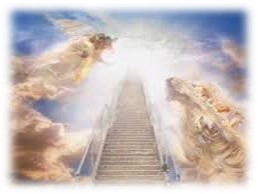HAGGAI 1: THE FALLOUT OF NEGLECT
Once again, I can look at a chapter like today’s and, at first glance, wonder what on earth it has to do with me. I was busy this morning and sat reading it in my car outside the gym. Bizarrely enough, however, and though written more than two millenniums ago, this chapter could be written about us today!
Haggai came in the season from Ezra to Nehemiah – about 500 years BC. For the people of Israel at the time, 70 years had passed in exile under the Babylonians and Persians. Then, the Creator God stirred the spirits of a remnant to return to Israel.[a] Among them were Zerubbabel (who become governor of Judah – Southern Israel) and Jeshua (Joshua) the High Priest. You may remember from our Breadcrumbs back in the first week of July that Jeshua, the High Priest (aided by those with him at the time) was the one who constructed ‘the last alter for sacrifice’ on its original foundation at the Temple site in Jerusalem.[b]
in exile under the Babylonians and Persians. Then, the Creator God stirred the spirits of a remnant to return to Israel.[a] Among them were Zerubbabel (who become governor of Judah – Southern Israel) and Jeshua (Joshua) the High Priest. You may remember from our Breadcrumbs back in the first week of July that Jeshua, the High Priest (aided by those with him at the time) was the one who constructed ‘the last alter for sacrifice’ on its original foundation at the Temple site in Jerusalem.[b]
At that time, the foundations of the Jerusalem Temple had been rebuilt with great enthusiasm. Then trouble set in and work stopped. Fifteen years later, Haggai steps onto the stage to remind the workers of King Solomon’s wisdom: “Give careful thought to the paths for your feet and be steadfast in all your ways…”[c] Four times, through Haggai, the Creator God warned the people of the day to “give careful thought to their ways” [v5,7; 2:15, 2:18] 25 Centuries later, I find it amazing that the issue continues to be similar to what we can experience today:
“You have planted much, but harvested little. You eat, but never have enough. You drink, but never have your fill. You put on clothes, but are not warm. You earn wages, only to put them in a purse with holes in it.” [v6]
But if the outcome, or the ‘effect’ on life, is similar, then perhaps the ‘cause’ is similar too. The overall effect on daily life in Haggai’s day can sound familiar to ‘the general feel’ of life today. The cause: The Fallout of Neglect.
Just as it can be today, the focus seemed to be on their own homes, and what could be accumulated as comforts around them, instead of erecting a central place in their community designed specifically for meeting with their Maker. With that said though, this chapter could be thought of as simple historical information. After all, there’s not been a Temple for offering sacrifices in Jerusalem for 2,000 years. And, if one would be rebuilt tomorrow, there wouldn’t be enough Levite priests in all the world – nor animals enough to sacrifice – to provide for all those who would want to make amends with their Creator God.
 The point I think that Haggai was making in his long-range prediction, was neglect. They didn’t build a place for their Maker at the heart of their neighbourhood, and as a top priority, that came above their own personal comfort. Nor did they restore a recognition of the Creator God, by attending a location especially for the purpose of bringing Him praise, thanks and honour.
The point I think that Haggai was making in his long-range prediction, was neglect. They didn’t build a place for their Maker at the heart of their neighbourhood, and as a top priority, that came above their own personal comfort. Nor did they restore a recognition of the Creator God, by attending a location especially for the purpose of bringing Him praise, thanks and honour.
The Fallout over Neglect continues to affect us today. There are people out there who say that the Creator God can be worshipped anywhere, even in their own homes – and that is true. Enoch, Noah, Job and Abraham were all people who had a close connection with the Creator God (as did many others in time) before there was ever a written Law or a Temple. But now that we have history behind us, HIStory is clear that a central location for corporate praise, which is visible in the community and at the heart of our lifestyles, is something that honours our Creator who made us in His own image to be like Him.[d] This will no doubt bring Him pleasure and honour. [v8]
So, whether it’s a grass-roofed hut in Africa, or a sophisticated cathedral in Paris, community praise and acknowledgment of our Father God should  take central place in our hearts and minds without neglect. Therefore, if what I bring home is blown right out of my hands [v9], it may be time for a re-think. If I’m planting a lot and harvesting little; or I’m earning wages but putting it in a purse with holes in it; perhaps it’s time for me to give careful thought to my life-path and lifestyle, so that I put my Maker back where He belongs – at the centre of what LIFE revolves around.
take central place in our hearts and minds without neglect. Therefore, if what I bring home is blown right out of my hands [v9], it may be time for a re-think. If I’m planting a lot and harvesting little; or I’m earning wages but putting it in a purse with holes in it; perhaps it’s time for me to give careful thought to my life-path and lifestyle, so that I put my Maker back where He belongs – at the centre of what LIFE revolves around.
But what I read today is also interesting to me for two other reasons.
Haggai introduces God’s Holy Spirit at work within everyday people. [v14] This is a concept that Joel talked about in his book (see my 21 August breadcrumb) and it’s what Believers may talk about today. They may say that “the Holy Spirit prompted someone” to do something. Or, the Holy Spirit was working on someone’s life. In fact, Believers say that we can’t do anything at all related to God or goodness, without it first coming from His Holy Spirit. He enables us, and empowers us, even to take steps towards our Maker. The Creator God’s Holy Spirit gives us the desire, and the creative ideas, to accomplish what’s “good”. In that sense, if a Believer manages to achieve something good, they’ll often say that it didn’t come from them, and that all ‘the glory’ goes to God.
But because the Creator God transcends time (i.e Heaven is His throne and Earth is His footstool[e], so He resides outside the confines of what we understand as time when standing here on Planet Earth), then every prophecy found in the Creator God’s story will have a transcendent, long-range element to it. And, because the Creator God miraculously preserved Haggai’s words these 25+ Centuries (when most of what was recorded in the ancient past has been lost), then translated it into more than 2,000 languages and dialects so that we could read it today, one more thing caught my eye in Haggai’s message this morning…
“This is what the Lord of Hosts says, ‘These people say, “The time has not come, even the time for the house of the Lord to be built.’”
I wonder how many of us translate Haggai’s warning by thinking of houses of worship, with special attention on whether the Jerusalem Temple will ever be rebuilt. Or, in our lifestyle and everyday comfort-gathering mentality that comes with ‘the here and now’, we downgrade a need for “the dwelling place of God among us”[g], as it seemed in Haggai’s day. And yet, all the while, we’re neglecting a crucial piece of information: that now IS the time. The time HAS come for the house to the Lord to be seen to be central, and there’s many rooms in our Father’s house!
In the 1st Century AD, Jesus said, “My Father’s house has many rooms. If that were not so, I wouldn’t have told you that I am going there to prepare a place for you? And if I go and prepare a place for you, I will come back and take you to be with me that you also may be where I am.”[f] That being the case, then what is Haggai’s message saying to ME today?
 In other words, if now is the time, and the house of the Lord is Heaven with many rooms (and not a “house” or Temple, as we’ve confined Him words to mean), then Haggai’s chapter is hugely significant for all of us today. A “house” – a dwelling place for humans – has and is being built, for the past 2,000 years since Jesus said it was so. And now is the time – not “soon” or “in a little while” – when the Creator God will suddenly and unexpectedly make His dwelling place the centre of everything…
In other words, if now is the time, and the house of the Lord is Heaven with many rooms (and not a “house” or Temple, as we’ve confined Him words to mean), then Haggai’s chapter is hugely significant for all of us today. A “house” – a dwelling place for humans – has and is being built, for the past 2,000 years since Jesus said it was so. And now is the time – not “soon” or “in a little while” – when the Creator God will suddenly and unexpectedly make His dwelling place the centre of everything…
CLICK here to return to today’s “Daily Breadcrumbs”
[a] Ezra 1:5
[b] Ezra 3:2-3
[c] Proverbs 4:26
[d] Genesis 1:26
[e] Isaiah 66:1
[f] John 14:2-3
[g] Revelation 21:1-3